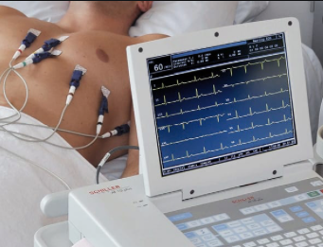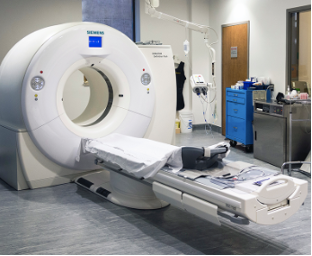We’ve all experienced shortness of breath and feelings of faintness, whether due to stress or other causes. But if you are concerned that they may be related to your heart health, you should consider Dr. Anne Griguer’s advice.
4 symptoms to be aware of:
-
-
- Chest pain: typically described as a pressure or constricting discomfort in the front of your chest or in your neck, shoulders or arms. Cardiologists call this ‘angina’ when related to coronary artery disease.
- Palpitations: the perception of abnormal heartbeats. This can include a feeling of the heart racing, an irregularity, or an unusual pounding sensation.
- Shortness of breath: a sensation of difficult or rapid breathing. It should alert you if it occurs while lying down or while doing everyday activities, especially if you haven’t experienced this before, or if it is associated with swollen ankles. The medical word is ‘dyspnoea’.
- Faintness, Blackout: a ‘presyncope’ is the sensation that you are going to faint, described as feeling dizzy, light-headed and weak. It can result in a ‘syncope’ when there is a transient loss of consciousness followed by complete recovery.
-
You may already have experienced one of these symptoms, but could they have been related to a heart problem?
Take note of these 3 red flags that should prompt a rapid medical review:
-
-
- The occurrence of these symptoms during exertion
- Association of more than one cardiac symptom
- Or a family history of cardiac problems.
-
Follow up in 2 steps:
These symptoms are frequent, especially under stress. To determine whether or not they are related to a heart problem, follow these two key steps.
1- GET ASSESSED BY YOUR DOCTOR
The first step is a thorough medical assessment. Your doctor will gather information about:
-
-
- Any family history of heart problems
- The presence of risk factors for heart diseases (smoking, overweight, hypertension, diabetes…)
- And a description of the circumstances triggering these symptoms.
-
2- ORGANISE CARDIAC TESTS WITH A CARDIOLOGIST
At the second step, organise specialised exams with a cardiologist to confirm or rule out a heart problem. Read on to find out about the 4 main examinations.
4 cardiac tests to consider:
Then, when a heart problem is suspected, these 4 tests can provide an answer:
-
-
- Electrocardiogram gives a live recording for your heart electrical activity. This can occur during the clinic in a few seconds (ECG) or during a prolonged period (24h to 3 weeks). Holter monitoring is done at home.
-

- Nowadays, you can get an ECG directly on your smartphone and the Holter monitor has also been miniaturised all while allowing all regular activities during the recording.
-
-
-
-
- Echocardiogram is similar to the ultrasound scans done during pregnancy. This test can assess the heart muscle, valves and the pressures in the heart. This determines how well the heart functions.
-
-
-
-
- BNP is a simple blood test that helps to determine if breathing difficulties are related to the heart or not.
-
Finally, if a problem is detected on one of these tests, further investigations will be arranged. These include a stress test, a cardiac MRI or an invasive angiogram.


